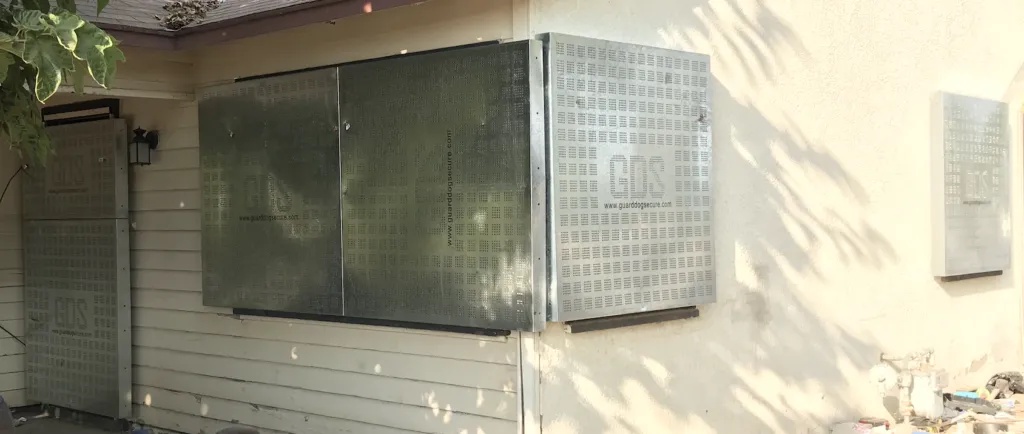Evictions are an unfortunate and complex aspect of the real estate landscape in Los Angeles County. The process of eviction, often referred to as the "unlawful detainer," can be a difficult and emotional experience for landlords and tenants.
Understanding the eviction lockout process in Los Angeles County is crucial for anyone involved in rental housing.
So, let's dig into the eviction lockout process in Los Angeles County!
The Importance of the Eviction Process
The eviction process in Los Angeles County plays a pivotal role in the rental housing landscape, serving as a structured legal mechanism to address disputes between landlords and tenants.
It is a process designed to ensure that the rights and interests of both parties are protected, maintaining a balance in the often complex and emotionally charged realm of landlord-tenant relationships. Here's a closer look at why the eviction process is crucial.
1. Resolution of Disputes
Evictions are not simply about removing tenants from a property. They are a legal framework for resolving disputes between landlords and tenants. Such disputes can encompass various issues, including non-payment of rent, lease violations, or disagreements regarding lease terms.
2. Safeguards for Tenants' Rights
One of the essential functions of the eviction lockout process in Los Angeles County is to protect tenants' rights. Tenants have rights under state and local laws, which should be upheld throughout the eviction process.
These rights may include the right to proper notice before eviction, the right to contest the eviction in court, and protections against wrongful eviction or retaliation by the landlord. The eviction process ensures that these rights are respected, and tenants are not unfairly or unlawfully removed from their homes.
3. Due Process
Due process is a fundamental principle of the eviction process. It ensures that landlords and tenants can present their cases and defend their interests in court. This means that landlords must follow specific legal procedures and provide adequate notice to tenants before initiating the eviction process.
4. Opportunity for Mediation and Settlement
The eviction process also allows for opportunities for mediation and settlement. Before a case goes to court, landlords and tenants may engage in negotiations or alternative dispute resolution methods to reach an agreement outside the courtroom. This can help expedite the resolution of disputes and save both parties time and resources.
5. Legal Framework
The eviction lockout process in Los Angeles County provides a clear legal framework that landlords and tenants can rely on. It outlines the steps to follow, the notices needed, and what legal help is available for both parties. This legal structure stops random or unfair actions and keeps everything within the law's boundaries, ensuring that actions are taken within the confines of the law.
6. Notice to Quit
The eviction process begins with the landlord providing a notice to quit. The type of notice and its duration depend on the reason for eviction. For example, if it's a non-payment of rent, the tenant typically receives a 3-day notice to pay rent or quit. They might receive a 3-day notice to perform a covenant or quit if it's for a lease violation.
The Court Process
The court process for eviction lockout process in Los Angeles County involves several key stages:
1. Service of Summons and Complaint
The tenant is served with a summons and a complaint, notifying them of the lawsuit and the court date.
2. Answer and Trial
The tenant has a set period to file an answer to the complaint and attend the trial, where both parties present their evidence and arguments.
3. Judgment
If the court rules in favor of the landlord, a judgment for possession is issued, which authorizes the sheriff to proceed with the lockout.
Tenant's Rights and Legal Protections
Throughout the eviction lockout process in Los Angeles County, tenants have rights and legal protections. Tenants need to understand their rights, which include the right to receive proper notice, the right to contest the eviction in court, and the right to be treated fairly and not retaliated by the landlord.
Resources for Landlords and Tenants
Various resources are available in Los Angeles County for landlords and tenants involved in the eviction process. These resources include legal aid organizations, tenant rights organizations, and mediation services. Both parties should explore these resources to help navigate the process more effectively.
Endnote
The eviction lockout process in Los Angeles County is a complex legal procedure involving various stages and legal protections for landlords and tenants. If you're into rental housing, knowing this process is like having a shield for your rights.
While evictions can be challenging, if you stick to the legal regulations and get expert help when needed, it can lead to a fair and just solution for all parties involved.


No comments yet